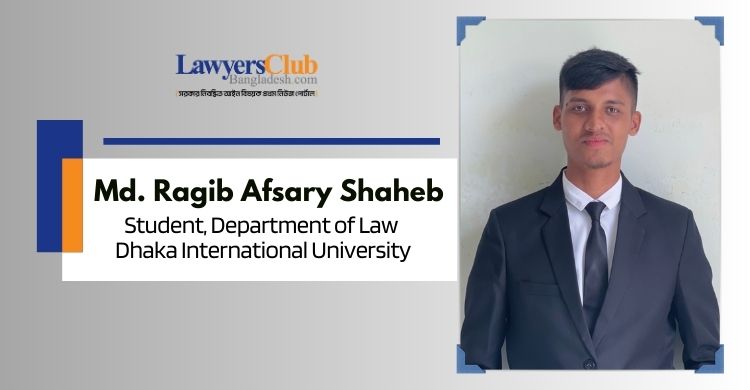Fundamental Rights in Bangladesh: Constitutional Basis, Limitations, and Enforceability

Abstract
In Bangladesh, the Constitution guarantees fundamental rights as enshrined in Part III (Articles 26–47A), serving as the cornerstone of individual liberty and the rule of law. However, these rights are not absolute; their enforceability is subject to constitutional limitations, statutory restrictions, and emergency provisions. Under Article 44, any citizen may move to the High Court Division for enforcement of fundamental rights, but the scope may be curtailed during a state of emergency under Article 141C, where certain rights like freedom of movement, assembly, and speech can be suspended.
Additionally, some constitutional provisions—such as Article 47(1) and (3)—exclude judicial review for specific laws, notably those relating to indemnity or certain wartime actions. Judicial interpretations in landmark cases, including Anwar Hossain Chowdhury v. Bangladesh and BLAST v. Bangladesh, have reinforced that while the judiciary acts as a guardian of fundamental rights, their application is neither unlimited nor unconditional. Therefore, in Bangladesh, fundamental rights are generally enforceable, but they operate within a framework of constitutional exceptions and procedural constraints.
Definition
Fundamental Rights, as the name suggests, are those basic human rights of the citizens of a country that are recognized and guaranteed by its Constitution. These are enshrined in the constitution and they are enforceable by the Court of Justice, in the sense that if there is any kind of violation of any of these rights, the concerned individual can go to the Apex Court for the protection and enforcement of his/her right, that is why these rights are known as fundamental rights. Fundamental Rights can be claimed by all the citizens of the concerned country equally, regardless of their caste, religion, gender, race, origin, etc unless exceptional circumstances exist when they cannot be enforced by a concerned individual as per the provisions of the Constitution.
In Bangladesh, fundamental rights are generally enforceable, meaning citizens can seek legal recourse if these rights are violated. The Constitution of Bangladesh guarantees fundamental rights and provides mechanisms for their enforcement, primarily through the High Court Division. However, certain exceptions and limitations exist, such as those related to disciplinary forces, national liberation struggles, and specific laws saved by the Constitution. In the constitution of the people’s Republic Of Bangladesh fundamental rights are included in part 3.
Bangladesh’s constitution enumerates 18 fundamental rights for its citizens, starting from Article 27 and ending at Article 44. These rights are primarily civil and political in nature. They can be broadly categorized into rights available to all persons (citizens and non-citizens) and rights specifically granted to Bangladeshi citizens.
In Bangladesh, fundamental rights are not always enforceable — their enforceability depends on certain constitutional provisions and circumstances.
Constitutional Basis
Part III (Articles 26–47A) of the Constitution contains the Fundamental Rights.
Article 44(1): Guarantees the right to move the High Court Division under Article 102(1) for enforcement of fundamental rights.
Article 44(2): Parliament may, by law, impose reasonable restrictions on the enforcement of fundamental rights in certain situations.
Situations When Fundamental Rights May Not Be Enforceable
Reasonable Restrictions
Many fundamental rights are subject to reasonable restrictions in the interest of public order, morality, health, security of the State, etc.
For example, Article 39 (Freedom of Speech) can be restricted for security, friendly relations with foreign states, or public order.
Emergency Provisions
Article 141B: During a state of emergency, Parliament may suspend the enforcement of certain fundamental rights (mainly Articles 36–40 and 42).
Article 141C: Parliament can also indemnify actions taken during an emergency.
The Doctrine of Necessity
The doctrine of necessity is a legal principle that allows for actions that would otherwise be illegal to be justified under exceptional circumstances, typically when an imminent threat or grave situation requires immediate action to protect essential interests. It’s a concept that can apply in both domestic and international law.
In essence, the doctrine argues that “that which is otherwise not lawful is made lawful by necessity”. This principle is often invoked when a state or individual is faced with a situation where their essential interests are threatened, and the only way to avert harm is to take actions that might violate existing laws or norms.
Specific Constitutional Limitations
Some rights are expressly non-enforceable in certain contexts. For instance:
Article 47(1): Laws relating to the prosecution of war crimes or crimes against humanity cannot be challenged as violating fundamental rights.
Article 47A: Certain rights under Articles 31, 35, and 44 may be inapplicable for individuals detained or prosecuted under such laws.
Judicial View
The Supreme Court of Bangladesh has consistently held that fundamental rights are enforceable only within the framework of the Constitution.
Example: Anwar Hossain Chowdhury v. Bangladesh, 41 DLR (AD) 165 (1989) — The Court emphasized that fundamental rights can be restricted according to constitutional provisions but cannot be abrogated entirely except as provided in the Constitution.
Conclusion
Fundamental rights in Bangladesh are not always enforceable. They are generally enforceable through the High Court Division (Article 44 & 102), but can be restricted or suspended by law, especially during emergencies or under special constitutional provisions.
Author Md. Ragib Afsary Shaheb is Student, Department of Law, Dhaka International University.

